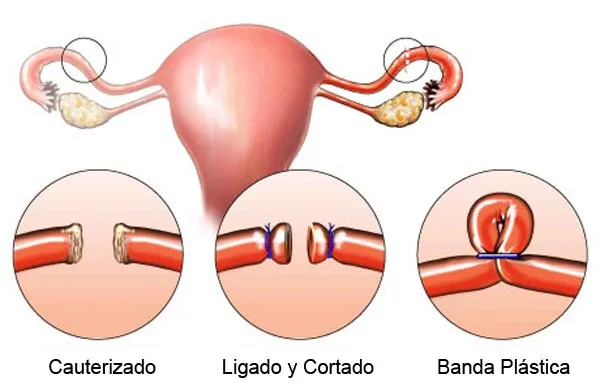Question:
Dear Father: I have read some of your articles and I still don’t understand why divorce is wrong. I would like you to give me more specific arguments. Thanks for your kindness.
Response:
Divorce is opposed to the indissolubility of marriage, which is a property of the institution of marriage even on the natural plane and supernaturally elevated by the sacramental bond.[1] Hence we must say that marriage is indissoluble by natural law. This is a fundamental thesis of Christian ethics and an express teaching of the Magisterium. In fact, Pius IX strongly condemned the liberal teaching that the marriage bond is not indissoluble by natural law and could therefore be completely dissolved by a civil authority.[2] Likewise, Pius XI in Casti Connubii, speaking of Christ’s words (cf. Mt. 19:6 and Luke 16:18)[3] clearly states that: “Moreover, these words refer to every kind of marriage, even that which is natural and legitimate only; for, as has already been observed, that indissolubility by which the loosening of the bond is once and for all removed from the whim of the parties and from every secular power, is a property of every true marriage”[4]
What are the reasons for sustaining such an affirmation that the apostles themselves found difficult? We can indicate four main reasons:
Indissolubility is necessary on the part of the end of marriage of the procreation and education of offspring.[5]
Whatever may be said to the contrary, it is not possible to bear and educate children in a convenient way without the perpetuity of marriage, which is why the union of man and woman is not only ordered by natural law to simple generation (as in other animals) but also to the education of offspring, and not only for a determined time, but throughout life. It is clear that the affective education of children is not achieved in just a few years. Children need the reference point of their parents throughout their lives (and reference point to the “indissoluble relationship” that parents have with each other; this is a source of serenity in the midst of their uncertainties, encouragement to persevere in their own trials, etc.).
Moreover, it is clear that ordinarily the woman by herself is not sufficient to support and educate the offspring; the need for the father’s collaboration, his intelligence to instruct and his energy to correct is necessary (one cannot object to the case of women or men abandoned by their spouse or widowed spouses, because one should not make a rule out of the exception, and, moreover, because in these cases, if the children have been properly educated – which is not always the case despite the efforts of the single parent – it has been at the cost of very high sacrifices on the part of educating parent). Human life requires many things that cannot be reached by one person nor are they acquired in a short period of time.
On the other hand, the natural life of the parents is naturally projected in the child; therefore, the child must be the heir of his parents, succeeding both his father and his mother in the possession of things. This order would be disturbed if the legitimate marriage could be dissolved, because the goods of either of the two would not reach their natural recipients.
Finally, there is a natural desire in man to have certainty about his offspring, that is, to know whether or not such a child is indeed his child. Therefore, anything that prevents such certainty goes against the natural instinct of the human species. If then the man could abandon the woman or the woman the man, to unite with others, the identity of the offspring could be uncertain if, having had sexual relations with one, he would then have them with others. That is why marital separation goes against the natural instinct of the human species.
This is further clarified by observing the consequences of divorce on children.[6] Divorce results for many children:
- The moral scandal of the disunity of their parents; growing up in a climate of violence, dialectics, envy, jealousy and competition (in fact they compete for their affection, to be given the reason that the other spouse was to blame for the family breakup, etc.).
- The suffering of being forced to take the side of one or the other of their parents, causing, in many cases, serious psychological problems.
- For many children it also means falling into poverty or misery and the drama of abandoned childhood.
- It increases early delinquency.[7]
- It causes behavioral problems. Some studies indicate that children of divorced parents regularly exhibit four typical negative behaviors: excessive lying, poor learning, failure to take responsibility for their own behavior, and difficulty concentrating.[8]
Indissolubility is demanded by the end of the marriage of conjugal love.
Conjugal love demands “definitiveness” to be true. Lacordaire said: “What being is so despicable, when he loves, to calculate the moment when he will not love?”[9] Another author has aptly written: “An alliance against the breaking of which the weaker party can never have complete security will in no way produce joy and solidity, and this without adding that it is a constant temptation to infidelity. For the stronger party, it is an inexcusable lack of character if he offers his promise only for happy days, and introduces into it, as a condition, the power to withdraw it as soon as the sacrifices are presented.”[10]
Indissolubility is required by the secondary ends of marriage (the mutual support of the spouses).
Marriage is also ordained to mutual help between the man and the woman. And because of this it is undoubtable that divorce often imposes enormous injustices against one or the other of the spouse. As. St. Thomas said: “So, if any man took a woman in the time of her youth, when beauty and fecundity were hers, and then sent her away after she had reached an advanced age, he would damage that woman contrary to natural equity. Again, it seems obviously inappropriate for a woman to be able to put away her husband… Now, there seems to be the greatest friendship between husband and wife, for they are united not only in the act of fleshly union…but also in the partnership of the whole range of domestic activity. Therefore, it is fitting for matrimony to be completely indissoluble.”[11]
There is no need to hide the face of this great misery. While it is true that some marriages resort to divorce by mutual agreement and with positive will of both spouses, it is also true that in many cases divorce is requested by one of the parties abandoning the other spouse due to illness, lack of attractiveness, etc., leaving him or her in their loneliness, sometimes with the burden of education and support of the children, etc.[12]
Indissolubility is required by the common good of society.
Finally (I mention without developing the idea) when arguing against the indissolubility of marriage, arguments of individual convenience are used, forgetting that the individual good is subordinated to the common good, both of the family and of society. For the stability of society, the stability of the family is necessary, since it is its basic cell. For this reason, John Paul II has said very well – and repeatedly – the future of humanity depends on the future of the family.
–Notes–
[1] Cf. Domingo Basso, Indisolubilidad del matrimonio, en: AA.VV., Criterios cristianos para la acción política, Ed. Claretiana, Buenos Aires 1983, pp. 85-92.
[2] Recall the condemnation of the Syllabus of Errors; DS 2967.
[3] Mt. 19:6 – So they are no longer two, but one flesh. Therefore what God has joined together, let no one separate; Lk. 16:18 – Anyone who divorces his wife and marries another commits adultery, and whoever marries a woman divorced from her husband commits adultery.
[4] Pius XI, Casti Connubii, 87; Cf. DS 3724 (CC, 85)
[5] Cf. St. Thomas Aquinas, Summa Contra Gentiles, III, c. 123.
[6] Cf. Héctor Hernández, Familia-Sociedad-Divorcio, Ed. Gladius 1986, pp. 90-106. Also cf.: Jorge Scala, (director), Doce años de divorcio en Argentina, Educa, Buenos Aires 1999.
[7] 90% of juvenile delinquents come from homes with severe family disruption; in the 1920s, a survey in California showed that 80% of the state’s teenage criminals were children of divorced parents; another survey showed that in the United States, of 200,000 juvenile delinquents, 175,000 were children of divorced parents. (cf. Miguel Fuentes, He Made them Male and Female, (IVE Press: New York, 2007), 152-153).
[8] Cf. “Damage Control”, Washington Times, February 20, 2001. The article indicates that one million young people in the United States become children of divorced parents every year, according to the National Center for Health Statistics. The article cites Dr. Michael Katz, a clinical psychologist in Southfield, Mich., who has worked with children of divorce for 30 years. Katz says that says such children regularly exhibit four classic negative behaviors: excessive lying, low achievement, denial of responsibility for their own behavior and difficulty in concentrating. While many children, regardless of background particularly teen-agers can exhibit those behaviors, Dr. Katz says children of divorce are resistant to many traditional forms of family therapy and discipline.
[9] Lacordaire, Conferencias de Notre Dame, cit., by Basso, loc. cit., p. 88.
[10] P. Weiss, Apología del Cristianismo, t.7, conf. 17: “Matrimonio y familia”, n. 8; cit. Basso, loc. cit., p. 88.
[11] St. Thomas Aquinas, Summa Contra Gentiles, III, c. 123.
[12] An emblematic case occurred recently in Milan, Italy, where a court fined a man for “moral damages” caused to his wife for divorcing her, including: having driven her into a state of lack of serenity, restlessness, sense of abandonment, etc. (Diario La Republica, June 5, 2002).
Original post: Here
Other posts: Did Jesus Christ admit divorce?














